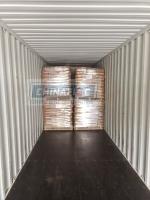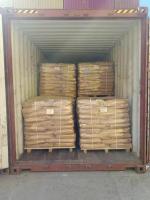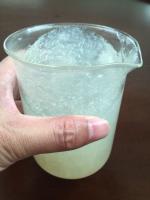Our Products
Product Center / super absorbent polymer manufacturer--Chinafloc fine chemical co.,ltd

super absorbent polymer manufacturer--Chinafloc fine chemical co.,ltd
Superabsorbent polymers (SAPs), also known as hydrogels, are a class of highly absorbent materials that can take up several times their weight in water or aqueous solutions. These polymers are engineered to swell and retain large amounts of liquid when exposed to water, making them invaluable across many industries. The versatility of SAPs in absorbing and retaining liquid makes them indispensable in a variety of applications, from personal care and hygiene products to agriculture, industrial applications, and environmental management. In this comprehensive discussion, we will explore the main applications of superabsorbent polymers in detail, with a focus on their roles in different sectors.
1. Hygiene and Personal Care Products
One of the largest and most well-known applications of SAPs is in hygiene and personal care products. The primary role of SAPs in this context is to absorb moisture and maintain dryness, ensuring comfort and convenience for users. Several hygiene products use SAPs to manage liquid retention effectively, such as diapers, adult incontinence products, sanitary napkins, and feminine hygiene products.
-
Baby Diapers: SAPs are used in the absorbent core of baby diapers. When a baby urinates, the SAP rapidly absorbs the moisture, turning it into a gel that traps the liquid and prevents leakage. This capability ensures that the diaper remains dry, keeping the baby's skin comfortable and minimizing the risk of skin irritation or rashes. Diapers with SAPs can absorb several times their weight in liquid, making them highly efficient at managing waste.
-
Adult Incontinence Products: Similar to baby diapers, adult incontinence products such as adult briefs, pads, and pull-ups use SAPs for liquid absorption. These products are particularly important for elderly individuals or those with medical conditions affecting bladder control. SAPs in these products provide effective moisture management, helping to maintain dryness, reduce the likelihood of leakage, and minimize odor.
-
Sanitary Napkins and Feminine Hygiene Products: SAPs are also crucial components of sanitary napkins, tampons, and panty liners. During menstruation, these products need to absorb significant amounts of fluid quickly. SAPs absorb and lock away menstrual fluid, keeping the wearer dry and comfortable. Their ability to absorb large quantities of liquid while maintaining a dry surface makes SAPs ideal for use in such products.
-
Incontinence Pads and Post-Surgery Pads: In addition to adult briefs, SAPs are used in incontinence pads and post-surgery pads. These pads help to absorb bodily fluids, including urine and blood, and provide a dry, comfortable layer for the user. The absorbent nature of SAPs helps prevent skin irritation and the growth of bacteria by keeping moisture away from the skin.
2. Agriculture and Horticulture
Super absorbent polymers also play an important role in agriculture and horticulture, where they are used to improve water retention in the soil and enhance plant growth. SAPs help conserve water, reduce irrigation needs, and support crops in drought-prone regions, making them valuable tools for sustainable farming practices.
-
Soil Moisture Retention: One of the primary uses of SAPs in agriculture is to increase the water-holding capacity of the soil. SAPs can absorb large amounts of water and gradually release it over time, providing consistent moisture to plants even during dry spells. This is particularly beneficial in areas with limited rainfall or in agricultural regions facing water scarcity. The inclusion of SAPs in the soil reduces the need for frequent irrigation, thus conserving water resources.
-
Hydroponics and Container Gardening: In hydroponics (soil-free farming) and container gardening, SAPs are used in growing media to improve water retention and nutrient availability. By holding water within the substrate, SAPs ensure that plants have a steady supply of moisture and nutrients, which can be particularly beneficial in controlled environments where traditional soil-based farming is not feasible.
-
Mulching: SAPs are sometimes incorporated into mulching materials to help conserve moisture in the soil. The mulch, combined with SAPs, acts as a barrier to reduce water evaporation, ensuring that plants have adequate moisture even in dry conditions. This is particularly useful for maintaining healthy plants during periods of heat or drought.
-
Seedling Growth and Transplanting: SAPs are also used in seedling growth, particularly in transplanting operations. When seedlings are moved from one location to another, the SAPs help maintain moisture levels around the roots, reducing transplant shock and improving the chances of survival. This use is especially important in large-scale agricultural operations.
3. Wastewater Treatment and Environmental Management
SAPs have significant applications in environmental management and wastewater treatment. Due to their high water-absorbent capacity, they are used to treat wastewater, manage sludge, and help clean up environmental contaminants such as oil spills.
-
Sludge Dewatering: In municipal and industrial wastewater treatment plants, SAPs are used to dewater sludge. The polymers absorb the water in the sludge, transforming it into a gel-like substance. This process helps to reduce the volume of sludge and make it easier to handle and dispose of. Dewatering with SAPs can also improve the overall efficiency of wastewater treatment, as it allows for better separation of solid and liquid components.
-
Oil Spill Cleanup: SAPs are highly effective at absorbing oils and hydrocarbons, which makes them useful for cleaning up oil spills. When an oil spill occurs, SAPs are deployed to absorb the oil, preventing it from spreading and minimizing its environmental impact. The absorbent properties of SAPs help to remove excess oil from the water, thereby reducing pollution and supporting recovery efforts.
-
Oil and Gas Industry Wastewater Treatment: In the oil and gas sector, wastewater generated during drilling and extraction operations often contains a range of pollutants, including oils, chemicals, and heavy metals. SAPs are used to absorb excess water from drilling fluids and wastewater, thereby improving the quality of the effluent and reducing the risk of contamination. SAPs play a crucial role in ensuring that wastewater is treated to meet environmental standards before being released back into natural water sources.
-
Contaminated Soil Remediation: SAPs are used in soil remediation efforts, particularly for cleaning up contaminated soil and water. They can help absorb and isolate harmful substances, such as heavy metals or chemical pollutants, making it easier to treat the contaminated soil and restore its quality. The use of SAPs in environmental management helps support sustainable land reclamation and pollution control.
4. Food Packaging and Preservation
Superabsorbent polymers are also employed in the food industry to enhance packaging materials and extend the shelf life of perishable products. Their water-absorbent properties help to preserve the freshness and quality of food by controlling moisture levels in packaging.
-
Meat and Poultry Packaging: One of the most common uses of SAPs in the food industry is in packaging for meat, poultry, and seafood products. These products often release moisture during storage, which can affect their quality and shelf life. SAPs are used in packaging to absorb excess moisture, keeping the product dry and fresh. By maintaining optimal moisture levels, SAPs help prevent bacterial growth and reduce the risk of spoilage.
-
Produce Packaging: Fresh fruits and vegetables release moisture during transportation and storage, which can cause wilting, mold growth, and faster degradation. SAPs are incorporated into produce packaging to absorb excess moisture, ensuring that the produce stays fresh longer. This helps reduce waste and improves the overall quality of fruits and vegetables during their shelf life.
-
Absorbent Pads in Packaging: SAPs are often used in absorbent pads placed at the bottom of food packaging. These pads absorb excess moisture released from perishable items, such as meats, cheeses, and bakery goods, helping to preserve their texture and prevent spoilage. These pads are typically disposable and are designed to enhance the consumer's experience by maintaining food quality.
5. Construction and Civil Engineering
In construction and civil engineering, SAPs are used to manage water in various applications, from concrete curing to soil stabilization. Their ability to absorb and release water makes them useful for enhancing the properties of construction materials.
-
Concrete and Cement: SAPs are sometimes incorporated into concrete and cement to control moisture levels during the curing process. The polymers absorb excess water, preventing cracking and shrinkage as the concrete sets. This results in stronger, more durable concrete that is less likely to suffer from structural damage over time.
-
Soil Stabilization: SAPs can also be used in civil engineering to stabilize soil, particularly in areas prone to erosion or poor compaction. The polymers help retain moisture in the soil, improving its ability to support construction projects such as roads, buildings, and infrastructure. This improves the soil's load-bearing capacity and reduces the risk of soil erosion in areas subject to heavy rainfall.
6. Medical and Pharmaceutical Applications
Superabsorbent polymers are used in medical and pharmaceutical fields, particularly in wound care, drug delivery, and controlled release systems.
-
Wound Care and Dressings: SAPs are widely used in wound care products such as dressings, bandages, and gauze. The polymers absorb wound exudates (fluid that leaks out of wounds) and create a moist healing environment, which promotes faster tissue regeneration and reduces the risk of infection. SAPs also help prevent the dressing from sticking to the wound, making the dressing easier to remove.
-
Drug Delivery Systems: SAPs are used in pharmaceutical applications to control the release of drugs. These polymers absorb bodily fluids and gradually release the drug over time. This method of controlled drug release can help maintain consistent therapeutic levels of medication in the body, enhancing the effectiveness of treatment while reducing side effects.





